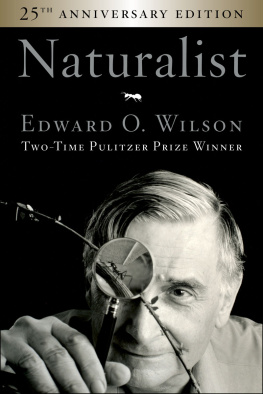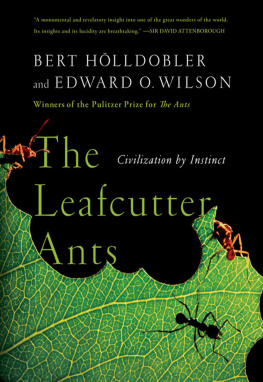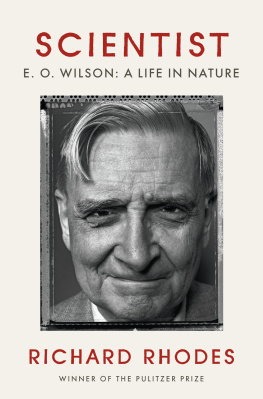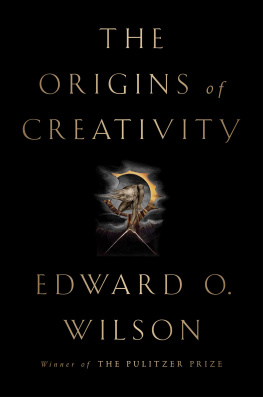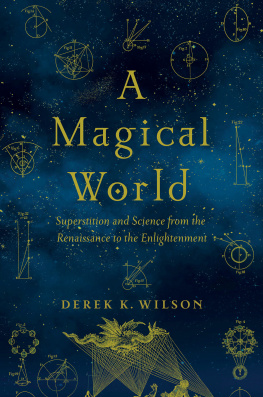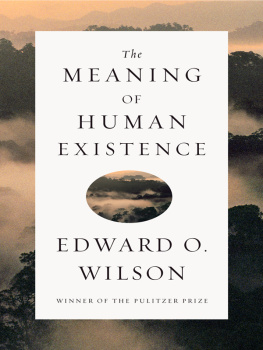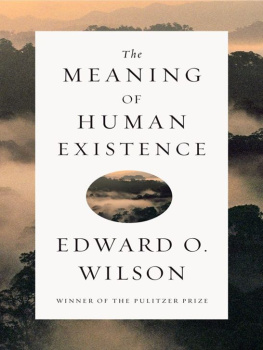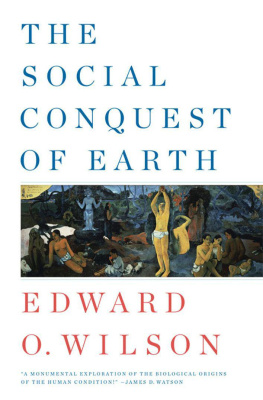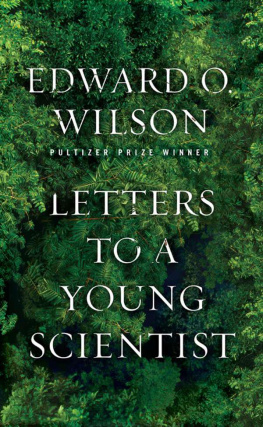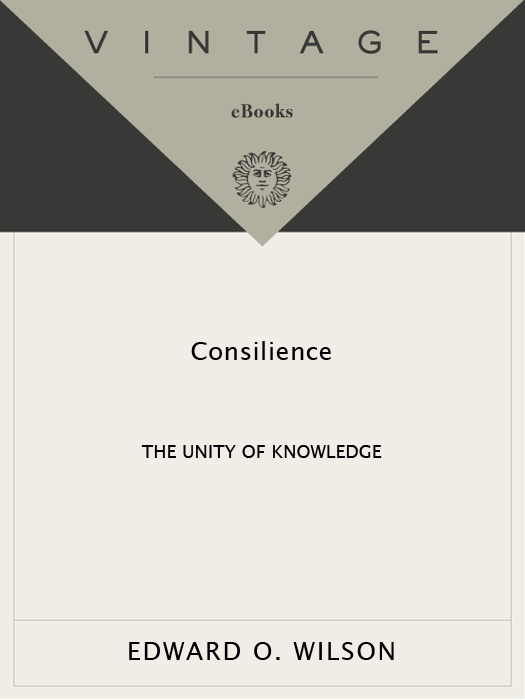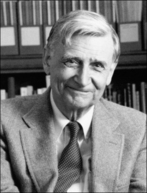Acclaim for E DWARD O. W ILSON S
Consilience
Edward O. Wilson is a hero he has made landmark scientific discoveries and has a writing style to die for. A complex and nuanced argument.
The Boston Globe
One of the clearest and most dedicated popularizers of science since T. H. Huxley Mr. Wilson can do the science and the prose.
Time
Exceptionally insightful. Looking beyond todays spectacular advances in reading the molecularly coded book of life, Wilson points to a future in which this biological understanding will give us the power to reshape ourselves. He cuts through much polarized nonsense about nature versus nurture or genes versus culture, showing how both are as relevant to us as to other animals.
Scientific American
A work to be held in awe, to be read with joy and attentiveness, to be celebrated and challenged and returned to again and again an act of consummate intellectual heroism.
The Baltimore Sun
An excellent book. Wilson provides superb overviews of Western intellectual history and the current state of understanding in many academic disciplines.
Slate
The Renaissance scholar still lives. A sensitive, wide-ranging mind discoursing beautifully. Wilsons buoyant intellectual courage is bracing.
Seattle Weekly
Extraordinarily clear, evocative elegant the sheer breadth of his project and daring in its undertaking win him the benefit of the doubt. A tour de force.
Publishers Weekly
E DWARD O. W ILSON
Consilience
E DWARD O. W ILSON was born in Birmingham, Alabama, in 1929. He received his B.S. and M.S. in biology from the University of Alabama and, in 1955, his Ph.D. in biology from Harvard, where he has since taught, and where he has received both of its college-wide teaching awards. He is currently Pellegrino University Research Professor and Honorary Curator in Entomology of the Museum of Comparative Zoology at Harvard. He is the author of two Pulitzer Prizewinning books, On Human Nature (1978) and The Ants (1990, with Bert Hlldobler), as well as the recipient of many fellowships, honors, and awards, including the 1977 National Medal of Science, the Crafoord Prize from the Royal Swedish Academy of Sciences (1990), the International Prize for Biology from Japan (1993), and, for his conservation efforts, the Gold Medal of the Worldwide Fund for Nature (1990) and the Audubon Medal of the National Audubon Society (1995). He is on the Board of Directors of the Nature Conservancy, Conservation International, and the American Museum of Natural History, and gives many lectures throughout the world. He lives in Lexington, Massachusetts, with his wife, Irene.
ALSO BY EDWARD O . WILSON
Naturalist
The Diversity of Life
The Ants (with Bert Hlldobler)
Biophilia
On Human Nature
Sociobiology: The New Synthesis
The Insect Societies
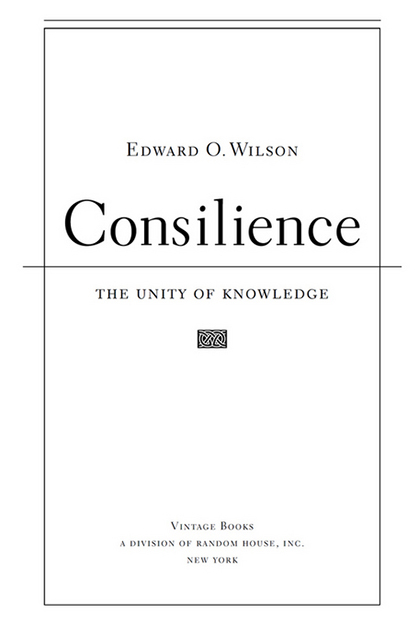
FIRST VINTAGE BOOKS EDITION , APRIL 1999
Copyright 1998 by Edward O. Wilson
All rights reserved under International and Pan-American Copyright Conventions. Published in the United States by Vintage Books, a division of Random House, Inc., New York, and simultaneously in Canada by Random House of Canada Limited, Toronto. Originally published in hardcover in the United States by Alfred A. Knopf, Inc., New York, in 1998.
Owing to limitations of space, all acknowledgments of permission to reprint previously published material will be found following the index.
The Library of Congress has cataloged the Knopf edition as follows: Wilson, Edward Osborne.
Consilience: the unity of knowledge / Edward O. Wilson.1st ed.
p. cm.
A Borzoi book.
Includes index.
ISBN 0-679-45077-7
1. Philosophy. 2. Order (Philosophy). 3. Philosophy and science.
I. Title.
B 72. W 54 1998
121dc21 97-2816
Vintage ISBN : 0-679-76867- X
eBook ISBN : 978-0-8041-5406-2
Author photograph J. D. Sloan
Designed by Cassandra J. Pappas
www.randomhouse.com
v3.1
Thus have I made as it were a small globe of the intellectual world, as truly and faithfully as I could discover.
F RANCIS B ACON (1605)
CONTENTS
CHAPTER 1

T HE I ONIAN E NCHANTMENT
I REMEMBER very well the time I was captured by the dream of unified learning. It was in the early fall of 1947, when at eighteen I came up from Mobile to Tuscaloosa to enter my sophomore year at the University of Alabama. A beginning biologist, fired by adolescent enthusiasm but short on theory and vision, I had schooled myself in natural history with field guides carried in a satchel during solitary excursions into the woodlands and along the freshwater streams of my native state. I saw science, by which I meant (and in my heart I still mean) the study of ants, frogs, and snakes, as a wonderful way to stay outdoors.
My intellectual world was framed by Linnaeus, the eighteenth-century Swedish naturalist who invented modern biological classification. The Linnaean system is deceptively easy. You start by separating specimens of plants and animals into species. Then you sort species resembling one another into groups, the genera. Examples of such groups are all the crows and all the oaks. Next you label each species with a two-part Latinized name, such as Corvus ossifragus for the fish crow, where Corvus stands for the genusall the species of crowsand ossifragus for the fish crow in particular. Then on to higher classification, where similar genera are grouped into families, families into orders, and so on up to phyla and finally, at the very summit, the six kingdomsplants, animals, fungi, protists, monerans, and archaea. It is like the army: men (plus women, nowadays) into squads, squads into platoons, platoons into companies, and in the final aggregate, the armed services headed by the joint chiefs of staff. It is, in other words, a conceptual world made for the mind of an eighteen-year-old.
I had reached the level of the Carolus Linnaeus of 1735 or, more accurately (since at that time I knew little of the Swedish master), the Roger Tory Peterson of 1934, when the great naturalist published the first edition of AField Guide to the Birds. My Linnaean period was nonetheless a good start for a scientific career. The first step to wisdom, as the Chinese say, is getting things by their right names.


